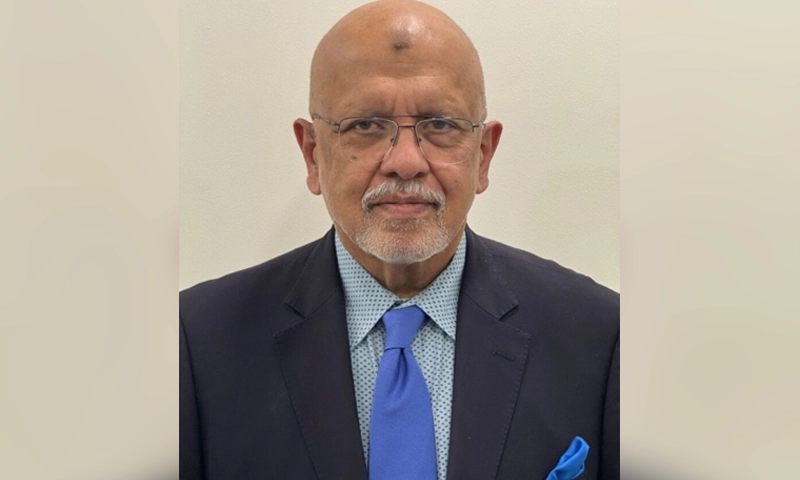- Farhan Bokhari
- Aug 05, 2025

Flags, quiet victories, and the long game of diplomacy
By the time the first rays of August 14’s morning light touch Islamabad, the city is already awake. Green and white flags flutter from balconies, schoolchildren rehearse speeches, and on street corners, vendors sell paper buntings in colours that speak of a shared dream. Independence Day is always loud in its celebrations – but the real story of Pakistan’s survival has often been written in quiet rooms, in conversations that never made the front-page news.
Our 78 years have been turbulent, to say the least. We have seen wars, political upheavals, and the weight of geography pressing on our borders. Yet, in the midst of these trials, Pakistan has crafted something less tangible but equally powerful: a diplomatic instinct that has kept us not just afloat, but relevant in the shifting currents of global politics.
In 1947, we were a newborn state in a hostile neighbourhood, with few resources and even fewer friends. Yet our first diplomats, led by Sir Zafarullah Khan, stepped into the United Nations and spoke with the authority of a nation twice our size. He stood for Palestine, for decolonisation, for the rights of smaller nations – not because it was popular, but because it was right. That moral stance became our calling card in the years that followed.
There were moments when Pakistan’s diplomatic moves changed the shape of history. In 1971, the country helped bridge the gap between two of the world’s most powerful rivals – the United States and China. It was an act of trust-building that still echoes in textbooks, a reminder that in diplomacy, the right messenger can matter as much as the message.
“The story of Pakistan’s survival is not only written in its wars and elections – it is also written in quiet rooms, in handshakes that crossed oceans, and in voices that spoke for us when the world was not listening.”
In recent months, our diplomacy has been tested again. The Pahalgam incident in Indian occupied Kashmir sent tempers soaring on both sides of the border. Social media lit up with calls for retaliation; hawkish voices on Indian news channels openly predicted escalation. The easy path for Pakistan would have been to answer fire with fire – but instead, Islamabad took the harder road: restraint.
Behind the scenes, there were quiet calls to Beijing, Riyadh, Ankara, and Washington. At the United Nations, our representatives pushed for an investigation rather than an exchange of fire. Within days, the heat began to dissipate. The headlines did not declare it, but in that moment, Pakistan had scored a win – before a victory on the battlefield, Pakistan had already won in the fragile arena of peace.
Some victories are more subtle. Love or hate the outcome, the Afghan peace talks would not have happened without Pakistan’s role as a facilitator. Our recent “Engage Africa” initiative is slowly weaving new threads of trade and cultural exchange far from our usual diplomatic playgrounds. And then there is the quiet work of our diaspora – doctors in Manchester, engineers in Dubai, shopkeepers in Toronto – who tell Pakistan’s story in ways no official communiqué ever could.
Diplomacy is often described as the art of the possible. For Pakistan, it has also been the art of endurance. We have had to navigate Cold War rivalries, post-9/11 tensions, and the increasingly unpredictable weather of global politics. Yes, we have stumbled. Yes, we have paid. But every time, we’ve returned to the table.
As we look ahead, the challenges are enormous. Climate change is redrawing maps and shifting alliances. Trade wars and technological rivalries are replacing old battle lines. Our foreign service needs fresh thinkers – young diplomats who understand that policy now lives as much in trade agreements and climate conferences as it does in defence briefings.
On this August 14, we will hear speeches about sacrifice, resilience, and national pride. All true. All important. But in the silent halls of the Foreign Office and the closed rooms of global summits, Pakistan’s diplomatic nerve quietly keeps us in the game.
Yesterday, the President and Prime Minister rightfully celebrated those who shine – on battlefields, on stages, and in conference halls – with a constellation of Sitaras. But perhaps today, we might pause to remember others: those who stand quietly, often alone, in rooms where every word can shift the course of peace.
Their victories are unseen, their names unsung – but they are victories nonetheless. The kind that keep the green and white flag flying high over a free Pakistan, for all the generations still to come.




